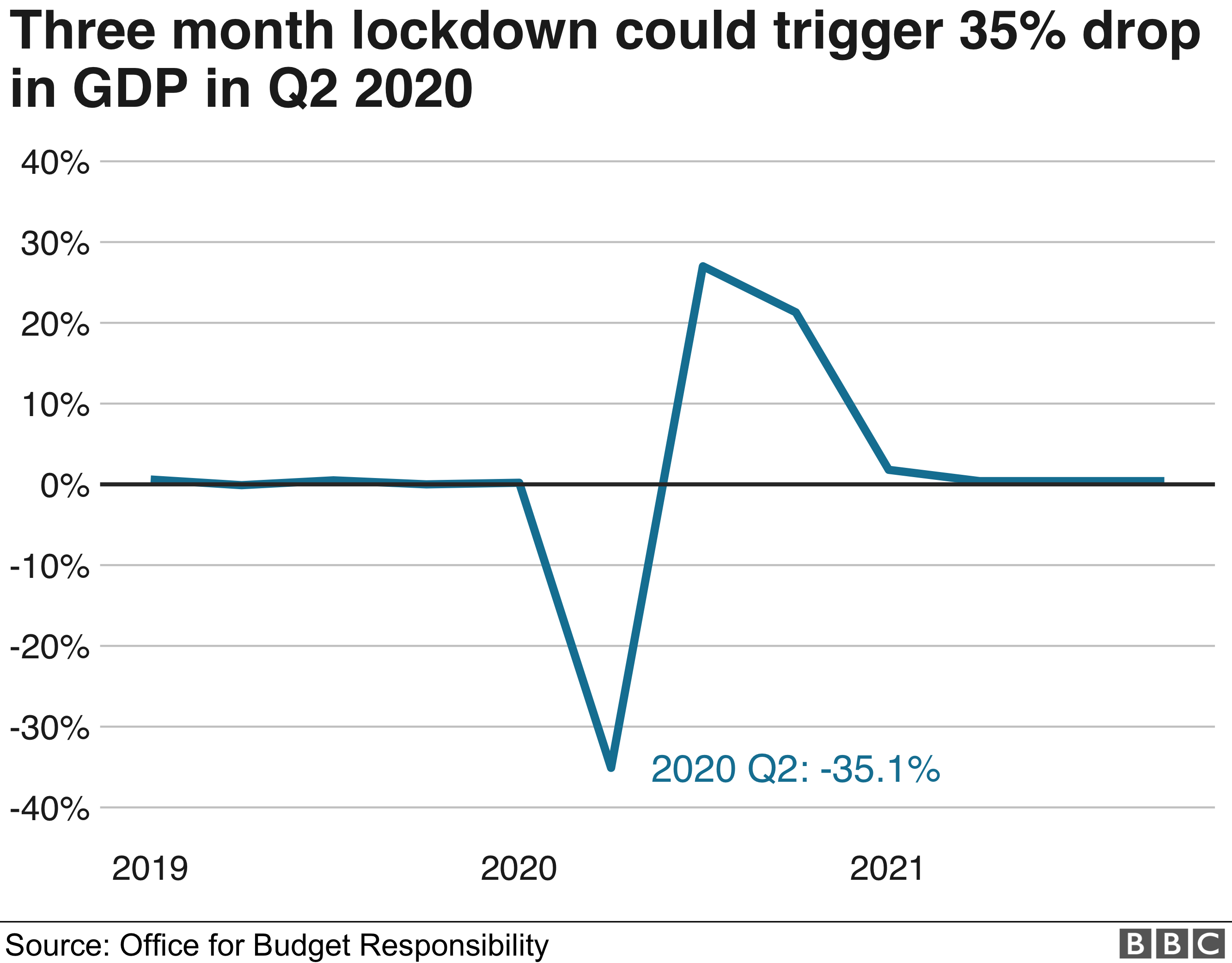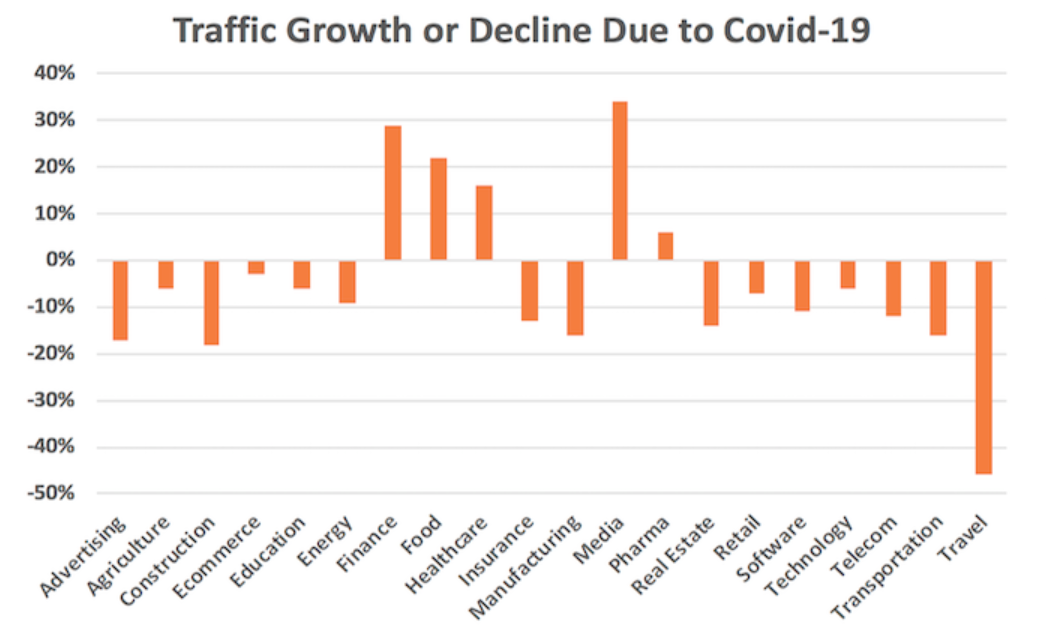
The changing ecommerce landscape: what will online retail look like after coronavirus?

The pandemic is forcing through some of the largest retail changes since the dotcom boom of the mid 90s. Those that have never before ventured into online sales are scrambling to do so, online services are pivoting in order to stay afloat and retail supply chains are being tested; all while online sales are soaring for some and slumping for others.
It is estimated that by June the UK economy could shrink by 35%, potentially returning to its pre-crisis growth trend by the end of the year. Even this scenario sees an economic contraction of 12.8% for this year in total, according to the Office for Budget Responsibility. For many businesses, these risks and recent events highlight the need to modernise and become online ready in order to continue trading when traditional brick and mortar stores become unreachable.

Rapid ecommerce adoption
Circumstances like these expedite the already rapid transition of commerce to online sales. Usually widespread adoption of something like making purchases through websites is a trust that evolves with generations of users. Younger consumers who never knew a world without the internet have both far greater trust for online retailers and payment gateways, and different expectations and norms when it comes to making purchases. However, the current situation has encouraged older and less technically-competent users who would not have previously explored online retail to begin doing so.
RELATED
Ecommerce website design for different buying styles
Even large organizations like supermarkets that already had significant online capabilities in place have fallen short of demand and are making permanent investments, expanding further into ecommerce to meet the growing demand. Government data is being used to help target and provide online sales and home delivery to those who are especially vulnerable, further accelerating the adoption of ecommerce among those who may not have previously been a typical customer.
Worldwide ecommerce sales were already expected to grow from $2.92 trillion in 2018 to $6.54 trillion in 2023, according to the 2019 Global E-Commerce report by Emarketer. This growth is because of the strong online shopping market in countries like China, the US, and the UK. South American and Asian markets are rapidly rising, too, with Mexico, India, and the Philippines having more than 30% growth in 2019.
Airbnb
The world will have to react to the economic fallout over the next few years, and those businesses that are prepared to meet the changing expectations of consumers will survive and even flourish. Some large, established businesses like Airbnb are particularly affected by national lockdowns and the crumbling of the tourism industry. As a result of this, they have temporarily diverted their significant resources into alternative offerings, such as their new Online Experiences.

This new concept supports Airbnb’s existing users and infrastructure, while evolving in the face of modern challenges. Users can book anything from virtual farm tours or guided meditation to creative writing and drawing lessons, all run by Airbnb hosts who have also been massively impacted by the drop in renting their properties. Airbnb hosts are provided with a way to monetize their expertise or local area and users can book virtual tours or classes instead of having to visit these locations.
This is an especially brilliant move as it not only opens alternative revenue streams for Airbnb itself, but also supports the hosts financially through this period so that they can still operate on Airbnb on the other side of the outbreak. Airbnb relies completely on its hosts, who rent their properties through its site, so it is essential that they create realistic ways to help them cover costs as much as it needs to cover its own if it is to survive.
The government has rolled out a pot totalling £330 billion to help struggling businesses as well as paying 80% of the salary of those who are still employed but without work to do. Even with these measures, 20% (over 1 million) UK businesses could close before the end of the lockdown, or as a result of the fallout over the rest of the year. According to the British Chambers of Commerce, most firms only have at most three months cash in reserve, with one in five having reserves for less than a month.
For most businesses the change will not be so drastic as with Airbnb. Retail outlets of any size or scale must, however, look at their ecommerce options in the near future if they are to survive.
The aftermath of the coronavirus
As the immediate impacts of the coronavirus pandemic begin to subside for individuals, businesses and the economy will return to the forefront of interest and concern. Most of the changes that we are seeing are unprecedented, making the scale of the impact impossible to predict fully, but there are some outcomes that we can predict.

After being cooped up inside for what will likely end up being months on end, consumers will be very keen to go outside, meet friends and spend time together out of their homes. Businesses that have suffered as a result of the lockdown but survived will prosper post lockdown, as the demand for such activities and opportunities to socialise will skyrocket. While some consumers will face financial hardships as a result of the pandemic, many will be looking to resume plans that were put on hold. This includes not only going out, but making purchases, resuming decorating or building projects, selling or buying homes, starting businesses and booking holidays.
While competition in some areas may be thinly spread as companies go under or pivot as a result of shifts in demand, innovation will flourish as it always does in challenging times. With the evolution of client expectations and trust in online business, those who look to utilize the internet in new and different ways will reap the greatest rewards. We will likely see a greater shift to online sales than has been seen in a single instance before, with the factors that differentiate good online stores becoming more prevalent and important than ever.
Retail sales during a crisis like the covid-19 outbreak follow a typical trend over a couple of months. After the initial steep decline, a steady recovery is usually seen within a return to norm after only a few months.
There are already a range of inventive scams aimed at cashing in on the fear that people have and the misinformation that they have seen about cleanliness and risk during the coronavirus pandemic. In the coming months, this trend will likely increase as covid-19 is used as a comparison when talking about other possibilities and risks that we may face in the future. While it pays off to be prepared for such eventualities, there will be new apprehension and uncertainty when selling based on or around the topic of healthcare, pandemics and preparation.
The important factors in building and operating an ecommerce shop are more important now than they have ever been. The design, functionality and speed of ecommerce sites and platforms will be tested and judged like never before as retailers battle to retain existing customers and bring in the massive wave of new, online-confident shoppers.